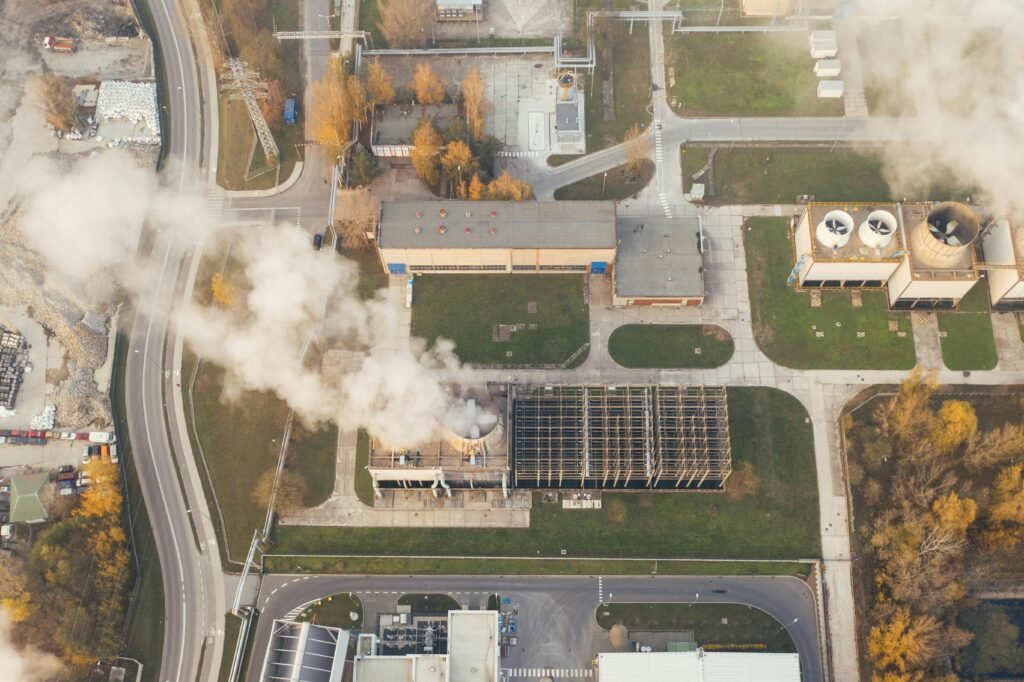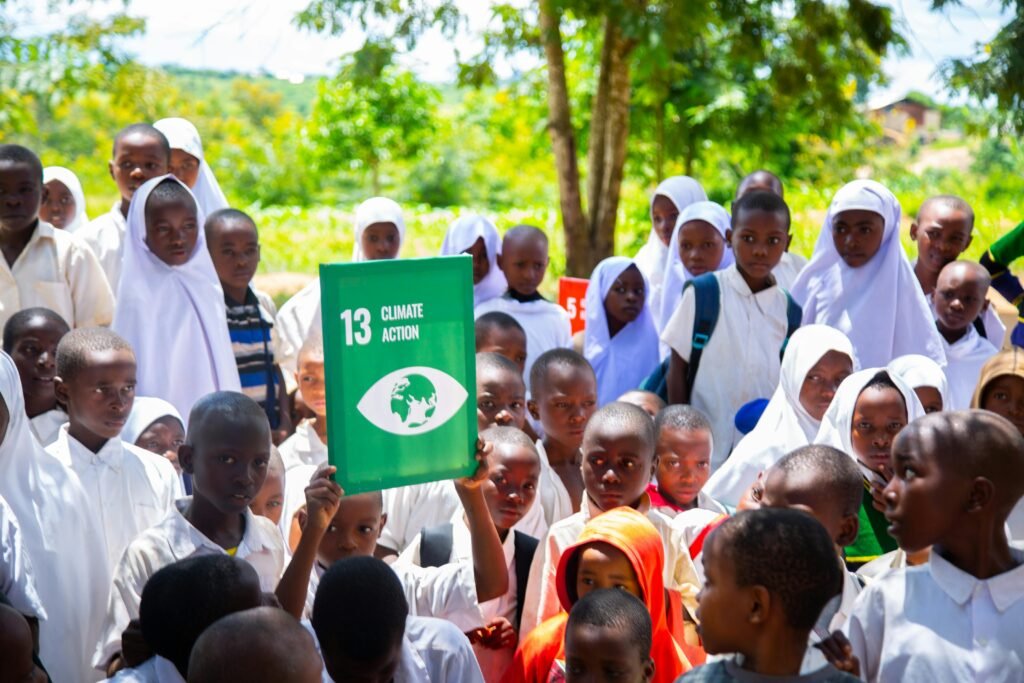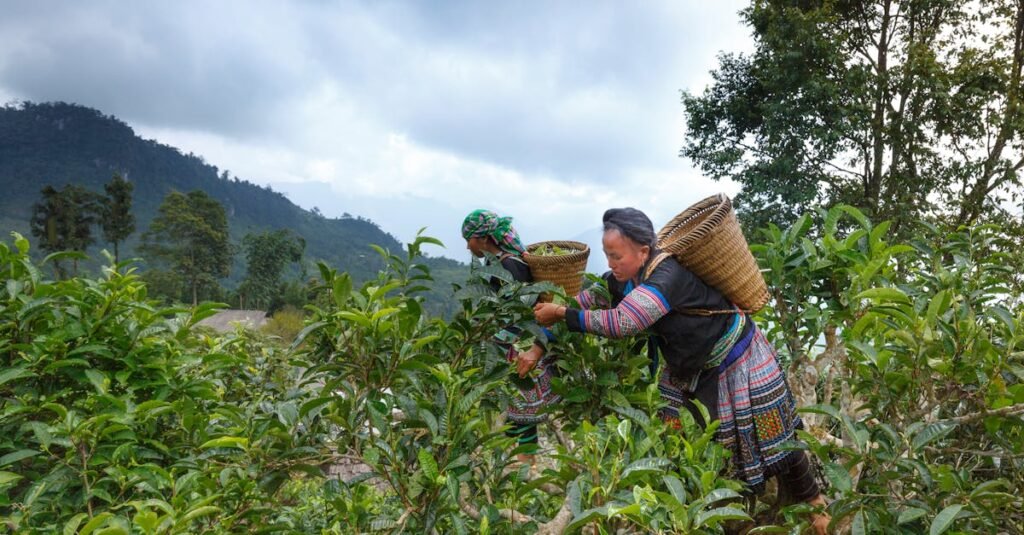Trend Nova World’s Development Sector drives global progress by advancing UN SDGs through innovation, partnerships, and sustainable solutions.

Trend Nova World’s Development Sector is a global leader in advancing the United Nations Sustainable Development Goals (SDGs), driving transformative change across 193 countries through strategic partnerships, innovative solutions, and impactful project delivery. Anchored in SDG 17 Partnerships for the Goals our mission is to unite governments, NGOs, private enterprises, and communities to accelerate progress toward the 2030 Agenda. This comprehensive exploration delves into our approach, services, impact, and vision for creating a sustainable, inclusive, and resilient world.
Our Vision: A Sustainable Future for All
The Development Sector is the cornerstone of Trend Nova World’s commitment to global progress. We envision a world where poverty is eradicated, ecosystems are protected, and institutions are equitable and transparent. By aligning our initiatives with the 17 SDGs, we address the interconnected challenges of people, planet, and peace through a holistic, partnership-driven approach. Our work is not just about meeting targets it’s about creating lasting, scalable impact that transforms lives and communities.
Operating in 193 countries, we leverage local expertise and global networks to deliver solutions tailored to diverse contexts. From microfinance programs in South Asia to renewable energy projects in Sub-Saharan Africa, our initiatives are designed to empower communities, foster resilience, and drive systemic change.
SDG-Aligned Framework: People, Planet, Peace & Partnership
Our work is structured around the three pillars of the SDGs People, Planet, and Peace & Partnership ensuring comprehensive coverage of all 17 goals. Below, we outline our focus areas and key initiatives under each pillar.
People: Empowering Communities (SDGs 1–6)
The “People” pillar addresses the foundational needs of human development, focusing on poverty alleviation, food security, health, education, gender equality, and access to clean water and sanitation.
- No Poverty (SDG 1): We design microfinance and livelihood programs to empower marginalized communities. In 2024, we disbursed $600 million in microfinance loans to 1.2 million entrepreneurs, primarily in low-income regions, boosting household incomes by 35% on average.
- Zero Hunger (SDG 2): Through partnerships with agricultural innovators, we promote climate-resilient crops, sustainable farming, and nutrition programs. Our initiatives have enhanced food security for 12 million people, with a focus on women and children in rural areas.
- Good Health & Wellbeing (SDG 3): We strengthen healthcare systems by collaborating with global health agencies to expand access to medical services and promote mental health. In 2024, our vaccination campaigns reached 6 million individuals, and mental health programs supported 600,000 people in conflict zones.
- Quality Education (SDG 4): We scale access to education through scholarships, digital learning platforms, and vocational training. Our programs provided education to 2.5 million students in 2024, with a focus on STEM and digital skills in emerging markets.
- Gender Equality (SDG 5): We empower women and girls through leadership training, workforce participation, and community development projects. In 2024, we trained 120,000 women in entrepreneurial skills, fostering economic independence across 50 countries.
- Clean Water & Sanitation (SDG 6): Our water security projects deliver safe drinking water and sanitation infrastructure. We installed 1,200 water purification systems in 2024, benefiting 3.5 million people in water-scarce regions.
Planet: Safeguarding the Environment (SDGs 7–15)
The “Planet” pillar focuses on environmental sustainability, economic growth, and resilient infrastructure to ensure a balanced coexistence with nature.
- Affordable & Clean Energy (SDG 7): We expand renewable energy access through solar, wind, and hydroelectric projects. In 2024, our initiatives powered 2 million homes in underserved regions, reducing reliance on fossil fuels by 20%.
- Decent Work & Economic Growth (SDG 8): Our goal is to create 100,000 sustainable jobs by 2030. In 2024, we facilitated 30,000 jobs in green industries, prioritizing youth and women in emerging markets.
- Industry, Innovation & Infrastructure (SDG 9): We support digital transformation and resilient infrastructure, such as broadband networks and smart grids. Our projects connected 12 million people to high-speed internet in rural areas in 2024.
- Reduced Inequalities (SDG 10): We champion diversity, equity, and inclusion through programs that promote equal opportunities. Our initiatives supported 1.2 million individuals from marginalized groups in accessing education and employment.
- Sustainable Cities & Communities (SDG 11): We advise on affordable housing, resilient urban planning, and smart city development. In 2024, our projects housed 60,000 families in sustainable urban communities.
- Responsible Consumption & Production (SDG 12): We promote circular economy models and ethical sourcing. Our partnerships with 600 companies reduced waste by 25% through recycling and upcycling initiatives.
- Climate Action (SDG 13): Our climate resilience projects include reforestation, flood defenses, and green tech adoption. In 2024, we planted 12 million trees, sequestering 600,000 tons of carbon.
- Life Below Water (SDG 14): We support marine conservation and sustainable fisheries, protecting 1.2 million hectares of ocean ecosystems in collaboration with coastal communities.
- Life on Land (SDG 15): Our reforestation and biodiversity protection programs restored 600,000 hectares of degraded land in 2024, preserving habitats for endangered species.
Peace & Partnership: Strengthening Global Collaboration (SDGs 16–17)
The “Peace & Partnership” pillar fosters governance, transparency, and global alliances to ensure sustainable development.
- Peace, Justice & Strong Institutions (SDG 16): We support governance frameworks, anti-corruption measures, and institutional capacity-building. In 2024, we trained 12,000 civil servants in transparency and accountability practices across 40 countries.
- Partnerships for the Goals (SDG 17): Our global alliances mobilize funding, expertise, and innovation to deliver SDG-aligned programs. In 2024, we secured $1.2 billion in funding for development projects through public-private partnerships.
Core Services: Delivering Impact with Precision
Trend Nova World’s Development Sector offers a suite of services designed to align strategies, measure impact, and execute projects with excellence. Our core offerings include:
- Strategic SDG Advisory: We align national, corporate, and NGO strategies with the 2030 Agenda, ensuring coherence and impact. In 2024, we guided 60 governments and 1,200 organizations in integrating SDGs into their operations, from policy development to corporate social responsibility frameworks.
- Impact Measurement & Reporting: Using global-standard evaluation frameworks, we track progress on SDG indicators with real-time data analytics. Our proprietary tools provided impact assessments for 2,500 projects in 2024, covering 60 million beneficiaries.
- Cross-Sector Partnerships: We connect governments, private enterprises, and civil society to create scalable solutions. Our partnerships facilitated 600 collaborative projects in 2024, from renewable energy grids to education reform.
- Turnkey Project Implementation: From design to execution, we deliver end-to-end SDG-aligned projects with transparency and efficiency. In 2024, we completed 1,200 projects, ranging from water infrastructure in Asia to climate resilience initiatives in the Pacific.
Impact in Action: Transformative Projects Across the Globe
Our commitment to sustainable development is reflected in the tangible outcomes of our projects. Below are key examples of our impact in 2024:
Case Study 1: Microfinance for Women Entrepreneurs in South Asia
In Bangladesh and India, we partnered with local NGOs to provide $150 million in microfinance loans to 250,000 women entrepreneurs. Aligned with SDG 1 (No Poverty) and SDG 5 (Gender Equality), the program increased household incomes by 40% and created 60,000 jobs in rural communities. Our impact measurement tools tracked a 90% repayment rate, ensuring sustainability.
Case Study 2: Renewable Energy in Sub-Saharan Africa
In Kenya and Uganda, we collaborated with a renewable energy consortium to install 600 solar microgrids, powering 250,000 homes. Aligned with SDG 7 (Affordable and Clean Energy), the initiative reduced carbon emissions by 120,000 tons and created 6,000 local jobs, supporting SDG 8 (Decent Work and Economic Growth).
Case Study 3: Digital Education in Latin America
In Brazil and Colombia, we scaled digital learning platforms to reach 600,000 students in underserved regions. Aligned with SDG 4 (Quality Education), the program provided access to STEM courses, increasing graduation rates by 30% and equipping students with skills for the digital economy.
Case Study 4: Climate Resilience in the Pacific Islands
In Fiji and Vanuatu, we implemented a $60 million climate resilience project, including mangrove restoration and renewable energy grids. Aligned with SDG 13 (Climate Action) and SDG 14 (Life Below Water), the initiative protected 60,000 residents from rising sea levels and preserved 12,000 hectares of coastal ecosystems.
Why Trend Nova World’s Development Sector?
Trend Nova World’s Development Sector stands out for its ability to deliver transformative impact through:
- Global Scale with Local Expertise: Operating in 193 countries, we combine global standards with localized solutions, ensuring relevance and impact.
- Deep SDG Expertise: Our comprehensive understanding of the 2030 Agenda drives strategic alignment and measurable outcomes.
- Partnership-Driven Model: We unite diverse stakeholders—governments, businesses, NGOs, and communities—to create synergistic solutions.
- Innovation and Technology: From AI-driven impact tracking to green technology adoption, we leverage cutting-edge tools to enhance efficiency.
- Proven Impact: In 2024, our projects reached 60 million beneficiaries, from providing clean water to creating sustainable jobs and advancing education.
Synergy with Trend Nova World’s Ecosystem
While the Development Sector is our flagship for SDG advancement, it operates within Trend Nova World’s broader ecosystem, collaborating with our five other divisions HR Solutions, Logistics, Real Estate, Fashion, and Tech & Education Advisory. This synergy amplifies our impact:
- HR Solutions recruits and trains workforces for SDG-aligned projects, such as engineers for renewable energy initiatives.
- Logistics ensures efficient delivery of resources, such as water purification units, to remote regions.
- Real Estate supports affordable housing and smart city projects, aligning with SDG 11.
- Fashion promotes ethical production, creating jobs for women in developing regions.
- Tech & Education Advisory scales digital education and innovation, enhancing SDG 4 and SDG 9 outcomes.
This integrated approach creates a multiplier effect, enabling us to deliver scalable, sustainable solutions. For example, our renewable energy projects in Africa leveraged Logistics for supply chain efficiency and HR Solutions for workforce training, resulting in a 25% increase in project efficiency.
Get Involved: Partnering for a Sustainable Future
Trend Nova World’s Development Sector invites governments, businesses, NGOs, and communities to join us in advancing the SDGs. Whether you’re seeking strategic advisory, impact measurement, or project implementation, we are your global partner for sustainable success.
Contact Details:
📧 Email: contact@trendnovaworld.com
🌐 Website: www.trendnovaworld.com
📍 Address: 167–169 Great Portland Street, 5th Floor, London, W1W 5PF, United Kingdom
Book a Consultation:
Visit Trend Nova World – Development Sector to explore our initiatives and schedule an appointment.
Trend Nova World: Where Vision Meets Execution Across Seven Continents.
Finally
Trend Nova World’s Development Sector is a driving force for global change, advancing the UN SDGs through partnerships, innovation, and transformative projects. By addressing the needs of people, protecting the planet, and fostering peace and collaboration, we are building a sustainable future for all. With a proven track record of impacting 60 million lives in 2024, we remain committed to achieving the 2030 Agenda and creating lasting change for generations to come.








